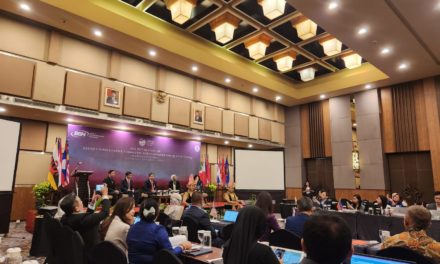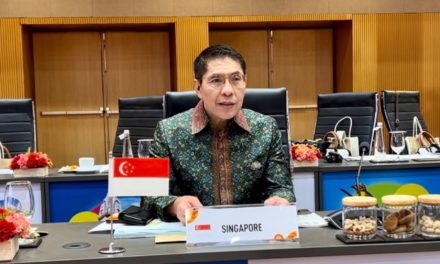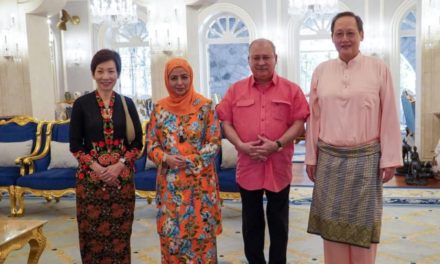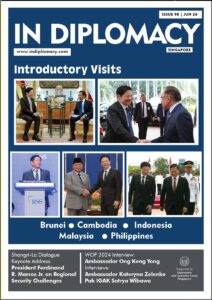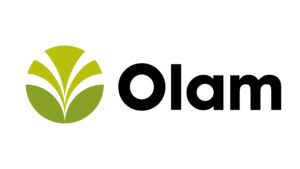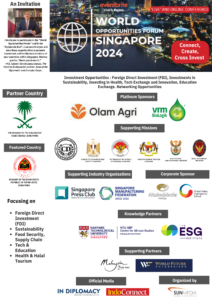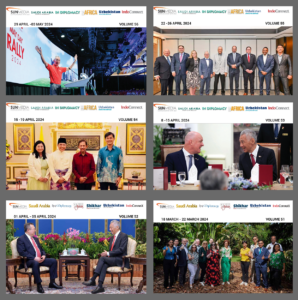Uzbekistan: A Land of Professionals
Very soon, Uzbekistan promises to grow into a country where absolutely any citizen, if asked about his/her profession, will give a specific answer. At the same time, in most cases, the respondents will name even several vocations they had got during their studies. Perhaps, Uzbekistan is going to be the only state that provides vocational education on a free basis. This is one of the main outputs of recent decisions made by the government to streamline the education system and ensure employment.
Summer is traditionally the time of the youth. Undivided attention is focused on the youth and on the solution of their urgent problems. It so happened because it is a time to arrange young people’s recreation, enrollment at the first grade or course. This summer has turned out to be unusually hot, as the government takes decision by decision to streamline education, with the focus on vocational education, making it more accessible.
Since the first years of independence, Uzbekistan has been paying close attention to the development of the education system. The laws ‘On Education’ and ‘On the National Staff Training Program’ were adopted. The creation of a system that allows everyone to get a vocation or specialty in line with the principle ‘Education throughout the Life’ ranks among the most significant achievements in this area. To make the system working, a network of institutions included almost 5,000 pre-school educational institutions, 9,000 general education schools, thousands of vocational colleges and academic lyceums, 70 universities, advanced training centers, and a system of scientific and pedagogical staff training.
Meanwhile, experts permanently seek for optimal options, the correctness of which is proved in practice.
The President of Uzbekistan Shavkat Mirziyoyev also prioritizes the development of education. The entire education system, the performance of its institutions, the organization and content of the educational process has been reviewed this year from the standpoint of the needs of the state and, above all, of the people. The most ambitious changes occur in the part of training qualified specialists.
The preschool education program was adopted to increase by 2.5 times the number of children attending nursery schools by 2021, supply all the parents whose children do not attend nursery schools with methodological aids that will help prepare their children for school. New state educational standards have laid modern approaches to schooling. Now, the educational process is aimed primarily at the cultivation of skills of independent creative practicing of the theory in students, which is very important for any specialist.
Meanwhile, one of the pressing issues of ten or eleven grade school education was put for the public discussion. Shavkat Mirziyoyev proposed a new form of eleven-grade school education, following which a graduate will get a document confirming his vocation. According to the results of the survey, it was decided to introduce an eleven-grade school education in the country. By the end of the ninth grade, every schoolboy, along with his parents, is entitled to choose the place to continue his or her education: a school, a college or an academic lyceum. Schools will provide the vocations the learning of which does not require specific conditions, which apply, for example, to vocations in healthcare system, engineering, mining. Such specialties can still be obtained solely in vocational colleges.
It is worth to mention another important decision, which promotes the strengthening of the principle that every young person should get a vocation or specialty. The government approved a resolution that graduates of academic lyceums will be assigned a specialty and vocation. The students will learn marketable vocations, which will help them to get employed in case if they fail to enter a university. The list of vocations popular among employers includes a database operator, an expert in processing, digitizing and storing electronic documents, a technician programmer, a technician system administrator, a laboratory assistant (by disciplines), an engineering chemist, an archivist, clerk, travel agent and others.
Moreover, the vocational education has been getting even more accessible. All the buildings of vocational colleges that were released due to the transition to eleven-grade education were transferred to the Council of Youth for the establishment of Youth Centers in them. Vocational training will rank among the areas of their activities. Every visitor will be able to get a marketable vocation or specialty at six month courses free of charge.
It is obvious how the popularity of higher education has grown among young people over the past few years. It is proved by the fact that last year, the number of documents submitted to universities exceeded the total quota of admission by seven times! This year, the government has taken certain measures that will help the bigger number of entrants to get higher education. The total quota of admission to higher educational institutions has been increased by more than 8,000 seats! Higher education institutions will receive more than 66,000 freshmen. The volunteers will be offered to get higher education on the terms of contracting at higher contract rates.
At the same time, traditionally before the start of receiving applications by higher education institutions, the Ministry of Economy, jointly with the Ministry of Higher and Secondary Special Education, revised the admission quotas in the context of education and undergraduate specialties, with an eye to the prospects of development of economic sectors, and wishes of young people.
As a result, two new universities have appeared on the country’s map, both in the Surkhandarya region, where only the Termez State University has been operating by the present time. The branches of Islam Karimov Tashkent State Technical University and Tashkent Institute of Irrigation and Mechanization of Agriculture will work in the region as of 2017.
Meanwhile, Uzbekistan is building a fundamentally new network of vocational education institutions to support the unemployed.
There is a certain practice of the establishment and successful operation of such centers in Tashkent and Samarkand. They were opened with the support of the Korean International Cooperation Agency KOICA. Another similar center will be commissioned this year in Shahrisabz, to be followed by the Ferghana Valley and Khorezm region in 2018 and 2019. According to a specific program of measures, vocational training centers for unemployed citizens will be gradually established in all regions of the country, bringing their total capacity to 20-25,000 retrained unemployed per year.
There is a fundamental innovation in the sector. Along with the regional vocational training centers that will operate within the system of the Ministry of Employment and Labor Relations, it is planned to establish nongovernmental educational institutions on professional staff retraining, which will work on a commercial basis with the preliminary compilation of a register of active private educational institutions and an inventory of their capacity for professional staff retraining. A draft government decision on their establishment is ready. They are expected to raise the efficiency of targeted staff training with subsequent employment.
This all suggests that very soon, Uzbekistan will turn into a unique country, every citizen of which has a background in a specialty and a vocation. At the same time, it is important to effectively manage this potential, not to lose it and channel it for the benefit of the country.
In this context, it is worth to mention the scaled work on the formation of the system of employment of graduates of educational institutions. Large scale initiatives have been undertaken in this area in recent months to eliminate the existing gaps.
The government has adopted a package of measures to encourage employers to provide school students with places for practical training and employ college and university graduates with due responsibility.
The enterprises that employ graduates are subject to various privileges and preferences, along with the mechanism of quadripartite agreements. When microfirms and small enterprises make labor contracts with graduates of vocational colleges, academic lyceums and higher educational institutions, the maximum norm of the average annual number of employed workers increases by 50%, with retained privileges, guarantees and rights for microfirms and small enterprises. The graduates who have passed state registration as individual entrepreneurs are released from tax payments for a period of six months.
The Ministry of Employment and Labor Relations has launched a college.mehnat.uz system to monitor the employment of graduates of vocational colleges in 2017. Data on graduates from the entire country, including taxpayer identification number (TIN) and the individual accumulative pension account (IAPA) is entered into the system, after which the system analyzes their employment. Almost all graduates have been registered in the system, nearly 456,000 of them this year. The system will help to reveal the facts of their unemployment and take additional measures to address their problems.
Job fairs are seen as an effective form of assistance in employment of college and university graduates. What is new with them is that they now provide the participants with the opportunity to demonstrate their potential employers the skills they had acquired during their studies. Organizers of job fairs allocate the sites, where the participants present various tools, equipment and machinery, where they can demonstrate such skills as bricklaying, painting, welding, installation of sanitary ware, manufacture of handicrafts, repair of electrical appliances and others.
Much attention has been paid to the involvement of graduates in entrepreneurial activities.
For this purpose, the current curricular of colleges and lyceums have been supplemented with two types of training courses, which explain in an accessible way how one can become an entrepreneur, effectively using all the resources provided by the state in support of startup businessmen. There is a specialized portal ‘Create Your Own Business’ in the Internet, which exemplifies the business projects that were previously approved and financed by banks, success stories of those who have chosen this path. Video aids on the establishment of private business in real conditions were produced and distributed. By specific examples, they help a graduate to shape his own business idea.
Another measure of support comes to motivation of graduates to start their own business. In particular, on June 5-16, start-up weeks have been held in all regions of the country to provide employment, involve graduates of higher and secondary specialized vocational education institutions in business and support them. The events created all necessary conditions for implementation of innovative ideas and successful start of business.
As part of the new ‘Business Angels’ system, promising and financially successful entrepreneurs select the most interesting business ideas and projects proposed by college and lyceum graduates and take full responsibility for their implementation by direct financing, issuing sureties and guarantees, pledging their property for bank loans, providing other assistance and support for young entrepreneurs in the development of their business.
A new scheme of micro lending for startup businessmen, which has been piloted in Tashkent, is an effective incentive for graduates as it provides preferential conditions for them. Involvement of graduates of educational institutions in entrepreneurial activity has a multiplicative effect on addressing employment problems: as shown by the experience of previous years, a startup businessman employs an average of two people, most often his peers.
The Presidential Decree of May 24, 2017 ‘On measures to further streamline the state employment policy and radically raise the effectiveness of performance of labor authorities’ and the resolution on organization of activities of the Ministry of Employment and Labor Relations stipulate fundamentally new tools to assist graduates in employment. Firstly, as of January 1, 2018, the established rate of unified social payment for first-time employed graduates of colleges, lyceums and universities in the private sector will be reduced. It will be reduced by 50% in the first year after their employment, and by 25% during the second and third years of their work. Secondly, aiming to prevent the facts of fraud employment record of college graduates, they are issued a TIN (taxpayer individual number) after they receive a passport.
Monitoring of receipts of social insurance contributions by TIN would accurately reveal whether the graduate was employed, and take measures accordingly.


